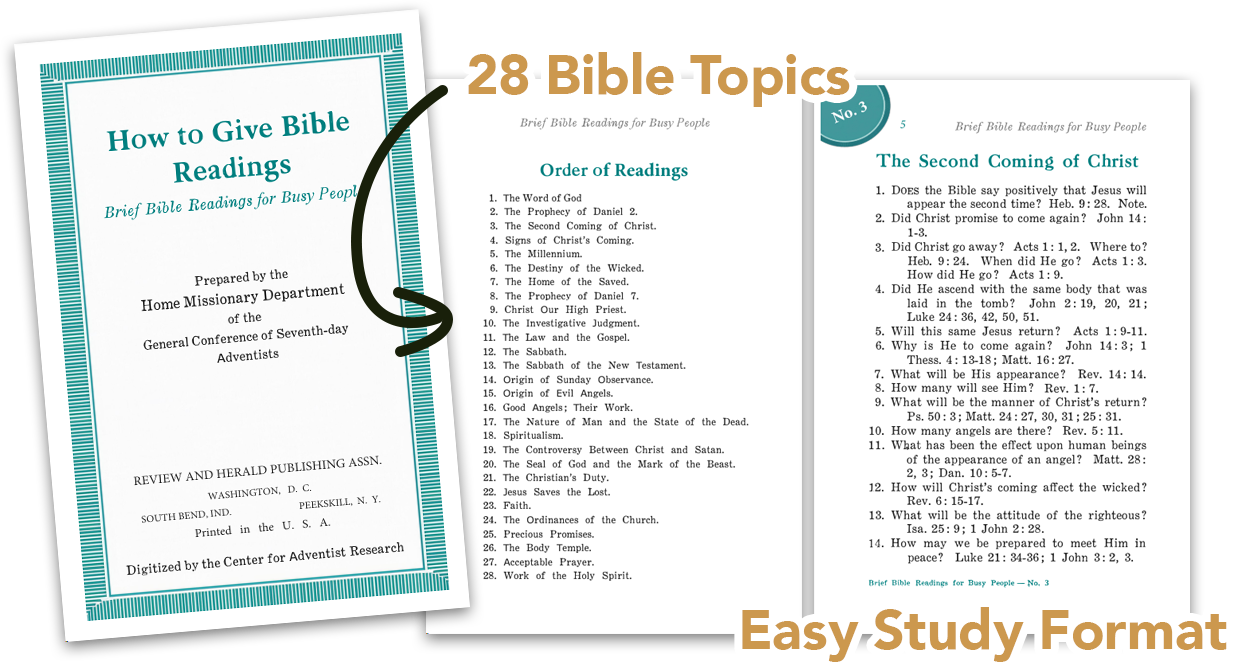The Bible is a collection of 66 books of religious texts. Christians revere them worldwide as the inspired word of God. Yet, sometimes figuring out how to understand the Bible can be a challenging task. Especially for those who may not know the context, language, and historical background. To comprehend the Bible better, you need to approach it with an open mind and a willingness to learn. Whether a beginner or not.
So, being here looking for help, you have already taken the first step!
Learn these helpful things in this guide:
First, let’s look at some verses in the Bible that explain their own meaning.

Background Verses About the Bible and Context to Ground Yourself
These verses are about how to understand the Bible based on a chain of verses. We reference them in a specific order to help give clarity and context.* It has very little commentary. This helps you do your own self-reflection and discovery of the verses. Many times the Bible explains itself if you know exactly where to look.
Each group of verses has probing questions that help you consider the meaning and answer. And each verse in the study has a link to an online Bible, should you want to check the context of the verses around it. Also, allowing verification of what scripture says, as well as purity of a study based only on the Bible.
How were the Scriptures given?
- 2 Timothy 3:16-17 (KJV) — “16 All scripture is given by inspiration of God, and is profitable for doctrine, for reproof, for correction, for instruction in righteousness: 17 That the man of God may be perfect, throughly furnished unto all good works.”
- 2 Peter 1:21 (KJV) — “For the prophecy came not in old time by the will of man: but holy men of God spake as they were moved by the Holy Ghost.”
How did God reveal truth to His prophets?
- Numbers 12:6 (KJV) — “And he said, Hear now my words: If there be a prophet among you, I the LORD will make myself known unto him in a vision, and will speak unto him in a dream.”
- Galatians 1:12 (KJV) — “For I neither received it of man, neither was I taught it, but by the revelation of Jesus Christ.”
“The revelations of prophecy are facts which exhibit the divine omniscience. So long as Babylon is in heaps; so long as Nineveh lies empty, void, and waste; so long as Egypt is the basest of kingdoms; so long as Tyre is a place for the spreading of nets in the midst of the sea; so long as Israel is scattered among all nations; so long as Jerusalem is trodden underfoot of the Gentiles; so long as the great empires of the world march on in their predicted course, — so long we have proof that one Omniscient Mind dictated the predictions of that book, and ‘prophecy came not in old time by the will of man.’”
— Will the Old Book Stand?, H. L . Hastings, page 19.
Has God guarded the purity of His word?
- Psalms 12:6-7 (KJV) — “6 The words of the LORD are pure words: as silver tried in a furnace of earth, purified seven times. 7 Thou shalt keep them, O LORD, thou shalt preserve them from this generation for ever.”
- Proverbs 30:5 (KJV) — “Every word of God is pure: he is a shield unto them that put their trust in him.”
Are the Scriptures infallible?
- Psalms 119:160 (KJV) — “Thy word is true from the beginning: and every one of thy righteous judgments endureth for ever.”
- Matthew 24:35 (KJV) — “Heaven and earth shall pass away, but my words shall not pass away.“
“This is the century of romance — romance in exploration, in discovery, in invention, in thought, and in life. . . . Through a series of marvelous discoveries and romantic events we have been let into the secrets of wonderful centuries of hitherto unknown peoples and events. . . . Now through the co-operation of explorer, archeologist, and linguist, we are the heirs of what was formerly regarded as prehistoric times. . . . These marvelous revelations from the archives of the nations of the past have painted for us a new background, in fact our first background, of the Old Testament.”
— The Monuments and the Old Testament, Ira Maurice Price , Ph. D., pages 17-18.
Are the writings of the prophets to be received as the words of God Himself?
- 2 Samuel 23:1-2 (KJV) — “1 Now these be the last words of David. David the son of Jesse said, and the man who was raised up on high, the anointed of the God of Jacob, and the sweet psalmist of Israel, said, 2 The Spirit of the LORD spake by me, and his word was in my tongue.”
- Jeremiah 1:4-9 (KJV) — “4 Then the word of the LORD came unto me, saying, 5 Before I formed thee in the belly I knew thee; and before thou camest forth out of the womb I sanctified thee, and I ordained thee a prophet unto the nations. 6 Then said I, Ah, Lord GOD! behold, I cannot speak: for I am a child. 7 But the LORD said unto me, Say not, I am a child: for thou shalt go to all that I shall send thee, and whatsoever I command thee thou shalt speak. 8 Be not afraid of their faces: for I am with thee to deliver thee, saith the LORD. 9 Then the LORD put forth his hand, and touched my mouth. And the LORD said unto me, Behold, I have put my words in thy mouth.”
- 1 Thessalonians 2:13 (KJV) — “For this cause also thank we God without ceasing, because, when ye received the word of God which ye heard of us, ye received it not as the word of men, but as it is in truth, the word of God, which effectually worketh also in you that believe.”
Are the prophecies important now?
- Hosea 12:10 (KJV) — “I have also spoken by the prophets, and I have multiplied visions, and used similitudes, by the ministry of the prophets.”
- Amos 3:7 (KJV) — “Surely the Lord GOD will do nothing, but he revealeth his secret unto his servants the prophets.”
- 2 Peter 1:19 (KJV) — “We have also a more sure word of prophecy; whereunto ye do well that ye take heed, as unto a light that shineth in a dark place, until the day dawn, and the day star arise in your hearts:”
For what purpose were the Scriptures written?
- 2 Timothy 3:16-17 (KJV) — “16 All scripture is given by inspiration of God, and is profitable for doctrine, for reproof, for correction, for instruction in righteousness: 17 That the man of God may be perfect, throughly furnished unto all good works.”
- Deuteronomy 29:29 (KJV) — “The secret things belong unto the LORD our God: but those things which are revealed belong unto us and to our children for ever, that we may do all the words of this law.”
- John 20:30-31 (KJV) — “30 And many other signs truly did Jesus in the presence of his disciples, which are not written in this book: 31 But these are written, that ye might believe that Jesus is the Christ, the Son of God; and that believing ye might have life through his name.”
What is necessary on our part (to understand them and get the most out of them)?
- John 5:39 (KJV) — “Search the scriptures; for in them ye think ye have eternal life: and they are they which testify of me.“
- Psalms 119:11 (KJV) — “Thy word have I hid in mine heart, that I might not sin against thee.”
- Psalms 119:16 (KJV) — “I will delight myself in thy statutes: I will not forget thy word.”
How are we to search the Scriptures?
- 1 Corinthians 2:13 (KJV) — “Which things also we speak, not in the words which man’s wisdom teacheth, but which the Holy Ghost teacheth; comparing spiritual things with spiritual.”
- Isaiah 28:10 (KJV) — “For precept must be upon precept, precept upon precept; line upon line, line upon line; here a little, and there a little:”
- Isaiah 28:13 (KJV) — “But the word of the LORD was unto them precept upon precept, precept upon precept; line upon line, line upon line; here a little, and there a little; that they might go, and fall backward, and be broken, and snared, and taken.”
- Luke 24:27 (KJV) — “And beginning at Moses and all the prophets, he expounded unto them in all the scriptures the things concerning himself.”
How shall we relate ourselves to the Scriptures?
- Proverbs 2:1-5 (KJV) — “1 My son, if thou wilt receive my words, and hide my commandments with thee; 2 So that thou incline thine ear unto wisdom, and apply thine heart to understanding; 3 Yea, if thou criest after knowledge, and liftest up thy voice for understanding; 4 If thou seekest her as silver, and searchest for her as for hid treasures; 5 Then shalt thou understand the fear of the LORD, and find the knowledge of God.”
- Proverbs 22:20-21 (KJV) — “20 Have not I written to thee excellent things in counsels and knowledge, 21 That I might make thee know the certainty of the words of truth; that thou mightest answer the words of truth to them that send unto thee?”
- Luke 6:46-49 (KJV) — “46 And why call ye me, Lord, Lord, and do not the things which I say? 47 Whosoever cometh to me, and heareth my sayings, and doeth them, I will shew you to whom he is like: 48 He is like a man which built an house, and digged deep, and laid the foundation on a rock: and when the flood arose, the stream beat vehemently upon that house, and could not shake it: for it was founded upon a rock. 49 But he that heareth, and doeth not, is like a man that without a foundation built an house upon the earth; against which the stream did beat vehemently, and immediately it fell; and the ruin of that house was great.”
Hopefully, you understand more about the Word of God. You learned what it is all about, its context, where it came from, and its meaning.
Now let’s look at some tips you can use to understand the Bible while you are reading. Then you will be ready to start studying topics that interest you.
10 Methods for Understanding the Bible
- Consider the context: It’s important to consider the context in which the authors wrote the Bible. So, this includes the historical and cultural background of the author. As well as for the people and places mentioned. Such as where are they from? What are their lives like? What have they been through? Then, check what is the literary genre of the passage. Is it a poem, a historical recount, a parable, or a prophecy? You can better understand the meaning and significance of the text when you know these.
- Study the words: To understand the Bible, you should study the words themselves. Look up unfamiliar words. Study them in the original language if possible. Then, consider how individual words and phrases contribute to the message. What do these words mean?
- Follow the storyline: The Bible tells a grand story of God’s relationship with humanity. From creation to redemption. You can understand the individual stories and passages better by knowing the larger narrative of the Bible.
- Look for repetition: Repetition is a powerful tool in the Bible. Often it indicates an important theme or message. Look for repeated words, phrases, or concepts as you read. And consider how they contribute to the message of the passage.
- Seek out different perspectives: Many different authors wrote the Bible over many different periods. You can read from a variety of perspectives. Consider how different authors or genres approach the same theme or message. Then, how can these perspectives inform your understanding?
- Place events in history: To understand the Bible, it’s important to consider the historical context. This includes understanding the time period, culture, and political climate of the author and verses’ subjects. So by understanding the historical context, we can better understand the message and meaning of the text.
- Checking the format written: The Bible is a collection of many different literary genres, such as poetry, narrative, and prophecy. By studying the literary style and structure of a passage, we can better understand its meaning and significance.
- Comparative analysis: Comparing similar passages from different parts of the Bible can help us see how different authors or genres approach the same themes or topics. By comparing the same word used in different passages, we can gain a deeper understanding of their meaning and significance.
- Topical focus: Study the Bible by topics, such as love, forgiveness, or salvation. This can help us see the woven themes throughout the entire Bible. By studying a specific topic, we can gain a deeper understanding of its importance and how it relates to our lives.
- Follow the big themes: The Bible is a theological book, and studying its theological themes and concepts can help us understand its message and meaning. By studying the nature of God, salvation, and other theological concepts, we can deepen our understanding of the Bible’s teachings.
Next, consider these tips to really take your understanding of the Bible to the next level.
25 Tips for How to Read the Bible
- Begin with prayer: Before you begin reading, take a moment to pray and ask God to guide you as you read and reveal His truth to you.
- Take it all back to Jesus: The Bible has many overarching themes in its story. But by remembering the ultimate theme of Jesus, we can better see the love of God. Jesus saw we need to be saved and came for our salvation. He wants us in His kingdom for eternity.
- Choose a specific version or translation of the Bible: There are many versions and translations of the Bible, and it is important to find one that is easy for you to read and understand. Some translations are more “pure” to the original manuscript meanings. Word-for-word translations like the King James Bible. They let you do the most accurate deep Bible Study, but they can be hard to read sometimes. Where a meaning-for-meaning translation, might be influenced by the translator’s thoughts on what words mean, they can be easier to read.
- Set aside a specific time and place for reading: Consistency is key when it comes to reading the Bible. Setting aside a specific time and place each day can help you establish a habit of reading.
- Start where you want: You do not have to start at the beginning of Genesis. Start with what interests you. You can even jump around reading here and there on what you want answers for first.
- Completely new? Start with the Gospels: If you have no specific topic you want to study and are new to the Bible, the Gospels (Matthew, Mark, Luke, and John) are a good place to start. They provide an introduction to the life and teachings of Jesus.
- Read slowly and thoughtfully: Take your time as you read and reflect on what you are reading. Consider the context and what the passage is saying.
- Take notes: Mark up your Bible. Jot down any questions, observations, or insights that come to mind as you read. This can help you remember what you’ve read and can also serve as a reference for later.
- Use study tools: A concordance (like Strong’s) or expository dictionary (like Vine’s) can really help you dig in deep. These study tools help you search for other uses of a word or phrase, a word in the original language, and meaning in different passages. Just be careful if you choose a study Bible. It can be a helpful tool as you read. But they have commentary and notes that are not divinely inspired and could be wrong.
- Read with a friend or in a group: Reading the Bible with others can provide a different perspective and can lead to deeper discussions and insights.
- Look for application: As you read, consider how the passage applies to your life. What lessons can you learn from it? How can you apply it to your daily life?
- Read with reverence: It is called the Holy Bible for a reason. Not that every Bible is a holy object. But this is the inspired Word of God. God trying to speak to us. And so bearing that in mind like any conversation, if you are too “casual” you could be missing the point. Jesus himself knew at times when preaching that some were listening with the correct attitude and some not, and only those with the correct would understand. The others did not have ears to hear.
- Read it humbly: Don’t think you know everything. If you already have this mindset, then it is impossible to learn anything new. An arrogant intent in reading the Bible is sure to bring no fruit.
- Pray when you don’t understand: If you get stuck on a passage, just pray. God wants to help us and give us knowledge. Of course, remember the answer may not always come immediately, nor how you expect it will come.
- Compare the Bible to the Bible: Keep it apples to apples. God gave us in the Bible everything we need. We do not need any other book or source to understand it. Sure some tools might help, but they are not required. It can be dangerous to rely on a non-inspired source to explain God’s Word.
- Don’t take things out of context: This is a particularly dangerous thing to do. You could come away with the wrong idea of what God means. Always cross-reference the Bible to the Bible for help in understanding.
- Don’t believe anyone: That sounds a little weird to say, but God tells us the hearts of men (and women) are deceitful. Just like we should not listen to false prophets, we should be careful who we believe when talking about God’s Word. They may be interpreting the Bible wrong knowingly or unknowingly, spreading false information. They may influence your beliefs in the wrong way. And ultimately our relationship and understanding of God comes from spending time with God and His Word, not from our Pastor, church leaders, or anyone else. Who we believe is who we have faith in.
- Don’t cherry-pick: Another dangerous temptation. Found a verse you don’t like what it means? It may be tempting to disregard or ignore it. But ALL scripture is inspired and for our good.
- Take God at His word: This is a big one. Trust God. Trust that God was able and did preserve His Word in the Bible and that God wants a relationship with you. God wants you to understand and be wise. He wants to help defend you from evil and untruth.
- Avoid influences: Some let their worldview and themselves, influence how they interpret the Bible. Instead, the Bible should influence our worldview. But other people, events, and our surroundings can also influence us.
- Read it multiple times: Sometimes it takes multiple readings for something to sink in, or for understanding to hit. Rarely does someone understand completely a book after just one reading.
- Read it all at one go: This doesn’t mean you need to sit and read the entire Bible in one go literally, but there is value in sometimes speed reading large sections, especially sequentially. It lets you better see the big themes, big picture, and overall story better.
- Don’t overanalyze: It may be tempting at times to find meaning that may not be there. While God is known to reveal truths at different times when it is appropriate.
- Meditate on what you’ve read: After you’ve finished reading, take a moment to reflect and meditate on what you’ve read. Consider how it applies to your life and what you can do to live out its teachings.
- Keep going: Even when you get stuck or don’t feel like reading more you should keep going. Don’t get discouraged. It’s OK if you don’t always understand. Sometimes the best time to read the Bible is when you don’t feel like it and are discouraged.
In conclusion, understanding the Bible is a crucial part of many people’s spiritual journeys, but it can be a challenging task. To comprehend the Bible better, individuals should approach it with an open mind, willingness to learn, and seek guidance from religious leaders and scholars.
By studying the text’s historical and cultural context, analyzing the language and symbolism used in the text, and exploring different interpretations and translations of the Bible, individuals can gain a deeper understanding of its teachings and apply them to their daily lives.
Ultimately, understanding the Bible is an ongoing process that requires patience, dedication, and an open heart to God’s message.
This study guide was based on Reading No. 1, pages 82-83 from How to Give Bible Readings, Brief Bible Readings for Busy People,
prepared by the Home Missionary Department
of the General Conference of Seventh-day Adventists.
Review and Herald Publishing. Published originally in 1930.
View the original study guide, which this guide is based on, as a scanned PDF. Full credit to them.
*A Bible chain reference is a system of cross-referencing between different passages or verses of the Bible to connect and relate different concepts, themes, or topics mentioned in different parts of the Bible. It helps readers gain a deeper understanding of the message and meaning of the text. To use it, readers start with a particular topic or theme and then look up the corresponding list of verses, paying attention to the connections and relationships between them. Studying them in a particular order, helps one understand the topic from beginning to end. Just like peeling the layers off of an onion. It’s a useful tool for anyone looking to deepen their understanding of the Bible and its teachings.






Leave a Reply